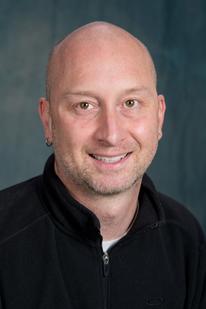
My project as a community-engaged scholar is to understand how contemporary social forces create processes of social change and resistance. To do this work I draw on multiple disciplines – from geography to history and public policy – with a goal of understanding how people and communities create new landscapes and livelihoods of their own unique design.
My current research agenda analyzes three interconnected issues: (1) white supremacy and US urban planning; (2) the interconnections between housing insecurity and food insecurity, and (3) how anti-racist food activists are fighting to institute the right to food in the US.
Contemporary resistance movements such as Black Lives Matter and support for housing encampments take place in a city designed with white supremacist underpinnings. Dr. Fernando Burga at the Humphrey School of Public Affairs in the Twin Cities and myself received a $10,000 grant from the Metropolitan Design Center at the University of Minnesota School of Design to host a series of workshops with planners from across Minnesota exploring how they can incorporate anti-racist planning into their work. As part of this project we interviewed white and BIPOC planners discussing themes such as allyship, David Harvey and Ananya Roy’s concept of ‘double agency,’ and anti-racist urban planning practices. We are currently developing a series of papers examining the concept of anti-racist planning and the how the intersectional identities of planners hinder and support the development of these strategies. This project ties an analysis of the racist history of urban planning with contemporary planning culture and practice.
The millions of Americans experiencing food insecurity use community economies as well as state programs to fend off hunger. My analysis of the connections between food insecurity and housing insecurity grew out of my work on food deserts and my book Confronting Hunger in the USA, which explores how non-profit food access programs address food insecurity. By expanding this research path to include the affordable housing crisis I bring together the literatures on neoliberal public policy, housing studies, and food justice which are seldom linked together. I am currently conducting ethnographic research at food pantries and interviewing food insecure households about their access to housing, as well as interviewing frontline workers about their positionality in these precarious systems. One outgrowth of this research is a collaboration with visual artist Dr. Maryam Kaleghi Yazdi (University of Minnesota Duluth, Department of Art and Design) and Dr. David Beard (University of Minnesota Duluth Department of English, Linguistics and Writing Studies) to create an interactive installation exploring the lives of frontline workers in housing and food organizations during the COVID-19 pandemic.
The racialized Right to Food research project explores how white racist public policy in different aspects of the US food system such as agricultural policy, federal food support programs, food banks, and restaurants have increased levels of food insecurity in BIPOC communities. In addition to the book chapter Hunger, Survivance, and Imaginative Futures: A RacialAnalysis of the “Right to Food”, Dr. Rebecca de Souza (University of Minnesota Duluth, Department of Communication) and myself are interviewing food activists across the country about the relationship between race and food insecurity. We examine these issues through the lens of Gerald Vizenor’s theory of survivance, which focuses on how indigenous cultural systems continue through centuries of oppression. In our research, we explore how activists are pushing back against racist public policy in order to further food security in BIPOC communities.
Recent Articles:
- Pine, A. & de Souza, R. (forthcoming). Hunger, Survivance, and Imaginative Futures: A Racial Analysis of the “Right to Food” in Dempsey, S. E. (Ed.), Organizing Food Justice: Critical Organizational Communication Theory Meets the Food Movement. Routledge. Full Text
-
Pine, A. 2019. “The Liberal Arts are Essential to Addressing the World’s Grand Challenges.” In “Think Pieces on UMD’S Liberal Education Program and the Value of the Liberal Arts.” Edited by Kristin Hylenski and Jennifer Brady. UMD Digital Conservancy. Full Text.ti